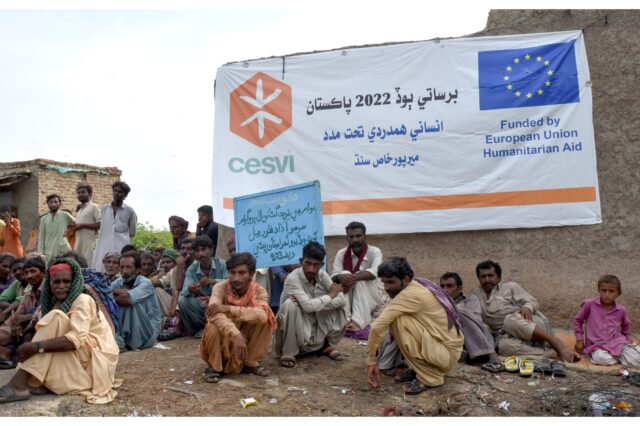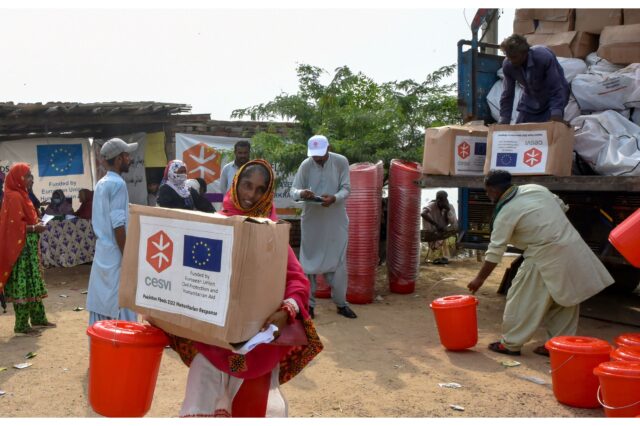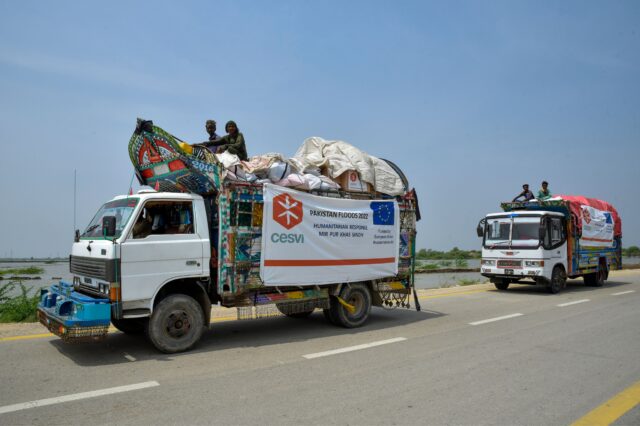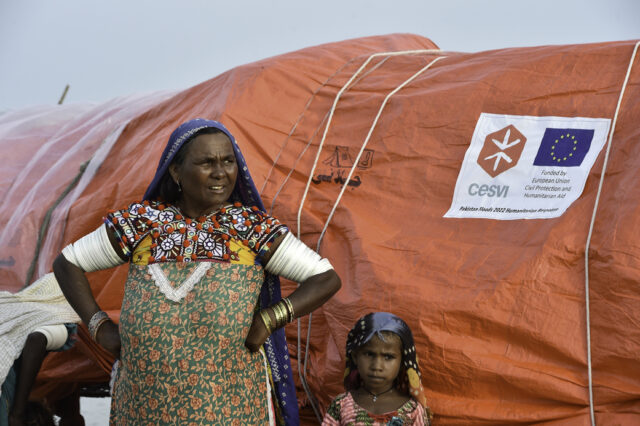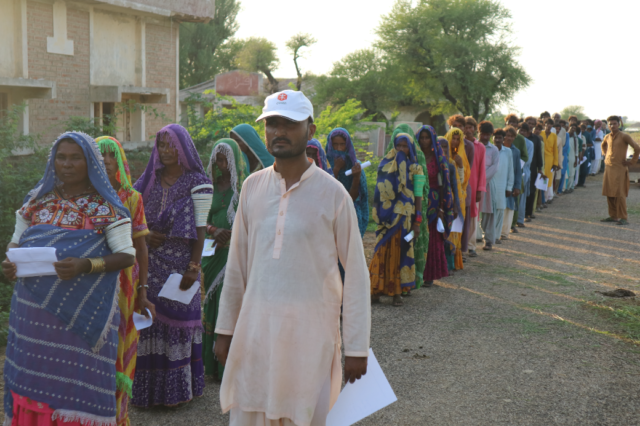We at CESVI have been present in Pakistan since 2005, reaching more than 2.5 million beneficiaries. We have been operating in Sindh for years, where we help local communities and authorities to improve their disaster response capabilities with training activities aimed at improving crisis response capabilities. We have also arranged for the creation of river water monitoring systems that make it possible to control the level of watercourses and to prepare for the impact of floods, once the alert threshold has been reached.
ContinueClimate emergency in Pakistan: ever-increasing numbers and an escalating humanitarian crisis
In Pakistan, over 7 million children and women need immediate access to nutritional and health services and some 5.5 million people lack access to safe drinking water. In the fragile segment of the population, 4 million children do not have access to health services (OCHA, 2022).
In flood-affected areas of Sindh and Balochistan, outbreaks of waterborne diseases continue to increase, particularly due to the unavailability of health facilities and the disastrous consequences of standing water.
Pakistan, the consequences of the flood also affect food security
In Pakistan, the number of people affected by the floods continues to remain dramatic: 33 million, of which 7.9 million are internally displaced.
Even if the rainy season is drawing to a close, in the southern provinces the situation is still critical and there is indeed an increase in the water level in the flooded areas.
In Pakistan we are still in a state of emergency
In Pakistan, about 7.6 million people, almost half of whom are children, are displaced, are still in a state of emergency and are in need of help (OCHA, 2022). At least 23,900 schools have been damaged or destroyed by floods across the country, most of them in Sindh. Of those remaining, 5,500 are used as rescue camps.
ContinueUpdates from Pakistan: the visit of Secretary General Guterres in a still disastrous situation
Between 8 and 10 September, UN Secretary General Antonio Guterres organized a visit to Pakistan to offer solidarity and support to the local community. Since June of this year, the country is experiencing a serious humanitarian crisis, caused by one of the worst monsoon seasons in its history.
Continue